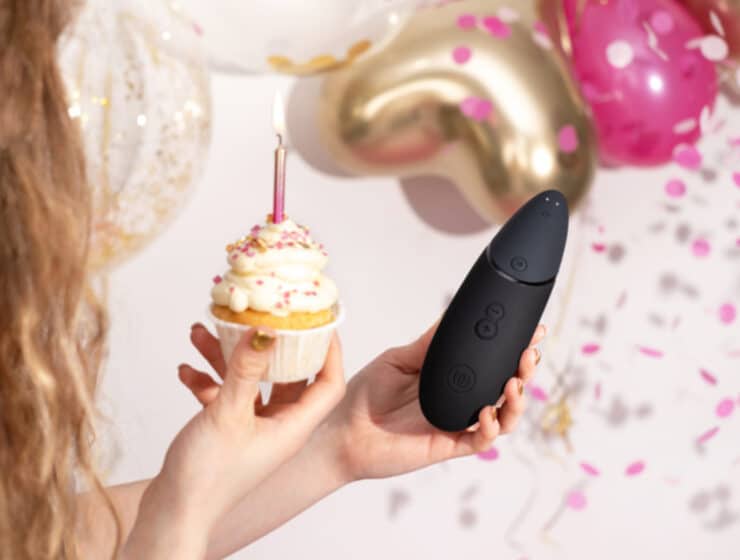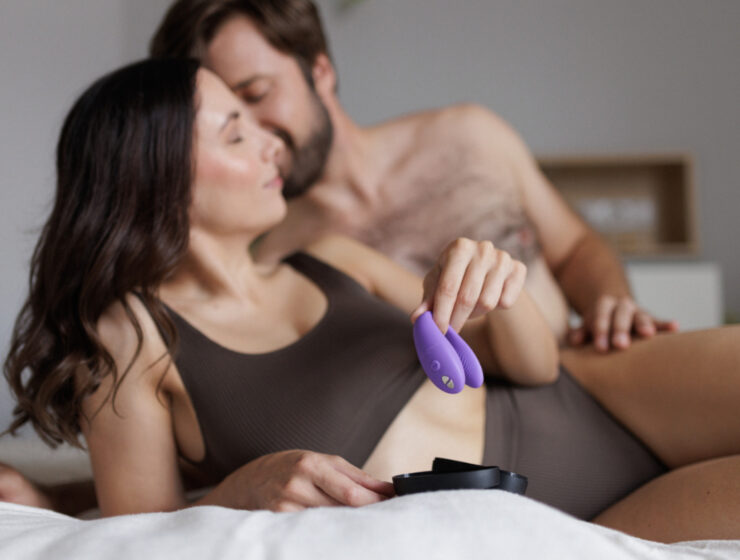Endometriosis is more than just menstrual cramps. Yet, many doctors still don’t recognize the gynecological condition or provide relevant educational materials. Women can suffer from intense pain during their periods, but it can be difficult to distinguish if the pain is part of the menstrual cycle or a symptom of an underlying problem. That’s why it’s important to detect endometriosis early on and learn more about it.
Girls who report severe pain during their menstrual cycles are often told that they should pull themselves together. Alternatively, they’re advised to take ibuprofen. Once the painkiller has kicked in, they’re supposed to function as usual, return to work, attend their seminars or classes. After all, menstrual pains are completely normal. Every girl has to be able to handle them. However, it may well be the case that some girls suffer a more severe condition called endometriosis. According to estimates, 10-15% of women of sexually mature age suffer from the condition.
What is endometriosis and what causes endometriosis?
Endometriosis is a chronic condition manifesting in benign growths of the uterine lining (endometrium). It is caused by migrating cells which settle in the abdomen, the peritoneum, the ovaries and fallopian tubes as well as the intestinal wall and bladder. These so-called endometriosis foci can bleed and cause severe pain. The pain can be particularly intense during menstruation, when the proliferating tissue swells just like the normal mucous membrane in the uterus in response to female sex hormones (especially estrogen). Women often experience these endometriosis symptoms as a painful burning sensation within their lower abdomen.
Endometriosis symptoms
For most women, severe menstrual cramps aren’t unusual. In fact, most menstruating girls will at some point have been told that cramps are completely normal. Just grin and bear it! However, it’s worth knowing that the pain could actually be a symptom of a more severe condition. Additional endometriosis symptoms to watch out for include:
- Menstrual pain and pain during intercourse
- A pulling sensation in the abdomen which worsens during the second half of the cycle
- Indigestion, including bowl and bladder cramps
- Apparent infertility: in about 30% of cases, endometriosis is the cause
Endometriosis Treatment
Because many physicians tend to downplay the condition (for whatever reasons), it’s important to insist on a thorough physical examination that includes palpation of the lower abdomen and an ultrasound. For example, blood-filled cysts could be conspicuous and confirm a diagnosis for endometriosis. However, a laparoscopy is the only way to be certain whether cysts are present. If cysts are detected, they should be removed immediately.
These types of interventions are fairly straightforward. An experienced surgeon at a special endometriosis treatment center is usually the best choice. Subsequently, outpatient care and individual hormone replacement therapy are often necessary.
But there is some good news…
Immediately following a successful cyst removal and hormone replacement therapy, women who attempt to conceive tend to have improved chances of success. In addition, even though endometriosis is a chronic condition, symptoms tend to weaken during menopause when female hormones levels decline.
Absolutely not a myth! Masturbation relieves period pain
Even if you don’t suffer from endometriosis, the days during your period can be quite uncomfortable. Cramps, abdominal pain, mood swings, etc. are no fun for anyone. And it is not uncommon for these complaints to be treated with painkillers.
But it can be much easier – and also more pleasurable – because solo sex can significantly alleviate the pain. This is proven by the Menstrubation Initiative, which was launched in May 2020 by The Female Company and Womanizer. Nearly 500 women masturbated during their period and accurately recorded their symptoms. All over the counter painkillers were avoided during the test phase.
And the results show solo sex during the period is a good idea! 90 percent of the participants confirmed that regular masturbation alleviated their symptoms. And 85 percent want to continue with this new masturbation routine.








